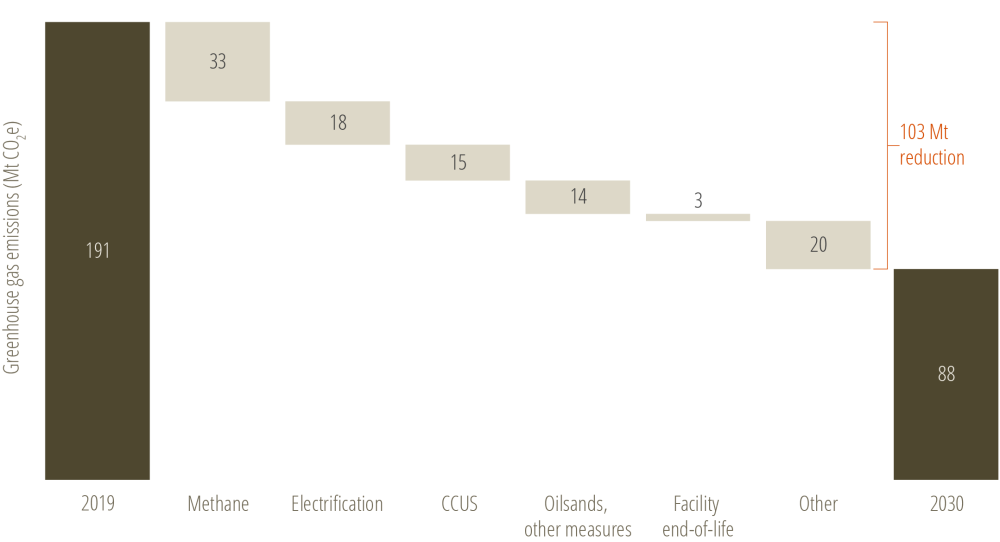
Photo: Pembina Institute
CALGARY— Janetta McKenzie, acting director of the Oil and Gas program at the Pembina Institute, made the following statement in response to the federal government’s release of a regulatory framework for the oil and gas emissions cap today at COP28 announcement.
“This is a good news day for climate action in Canada. We commend the federal government for developing the framework to reduce greenhouse gas emissions from Canada’s highest-emitting sector by far — oil and gas. The regulatory framework released today is an important step towards meaningful reductions in emissions from the oil and gas sector.
“While the proposed level of the cap is less than the estimate provided in the federal government’s 2030 Emissions Reduction Plan, it is a real reduction from Canada’s highest-emitting sector. And it's completely doable—even simply by adding together two sources of reductions; voluntary commitment already made by the oilsands industry and the federal government’s draft 2030 methane regulations.
“This emissions cap will finally prompt oil and gas companies to divert record profits into major investments in decarbonization. Existing policies are not enough. We support this important step to begin to reduce the overall emissions from oil and gas production, and we note that the level of the cap will need to decline steeply after 2030 in order to achieve net zero by 2050.
“Alberta’s climate plan calls for similar emission reductions from the oil and gas sector, but the province has done nothing to implement that plan. Alberta’s Emissions Reduction and Energy Development Plan, released in April this year, proposed strengthening methane regulations to reach a 75-80% reduction by 2030, and to lower the province’s oilsands emissions limit in line with the oilsands Pathways Alliance plan. The Alberta government has no credible basis for claiming that this level of reduction is unachievable, or that the province is already taking steps to achieve this goal.
“There is a fundamental shift coming to the global energy sector, as the energy transition gains momentum. Countries around the world are strongly motivated and are aggressively implementing policies that will ultimately reduce demand for Canadian oil and gas. Government policies that lower the emissions intensity of Canada’s oil and gas production will help to ensure Canada’s oil and gas sector is competitive in a lower-demand and carbon-constrained future at the end of this decade.
Background
Oil and gas is Canada’s highest-emitting sector, making up 28% of national emissions in 2021. The proposed target requires that the sector reduce emissions from 171 Mt in 2019 to 106-112 Mt in 2030, but allows companies to defer some direct reductions by buying offsets and allows companies to pay into a fund as an alternative to reducing emissions. This effectively lowers the amount that the industry actually has to reduce emissions to about 131-137 Mt, an absolute reduction of at least 34 Mt.
Given that the coalition of oilsands companies, the Pathways Alliance, has proposed a carbon capture and storage (CCS) project that aims to capture 22 Mt per year of carbon by 2030, and that draft methane regulations announced earlier this week at COP28 propose to reduce the equivalent of 17 Mt in 2030—which combined, meet the proposed cap, even without other measures like electrifying LNG or upstream facilities. The cap is extremely realistic.

Potential to reduce GHG emissions from oil and gas sector by 2030 (See: Decarbonizing Canada’s oil and gas supply)
-30-
Contact
Bhan Gatkuoth
Senior Communications Lead
P: 587-742-0818
Background
Report: Survival of the Cleanest: Assessing the cost and carbon competitiveness of Canada’s oil
Report: Decarbonizing Canada’s oil and gas supply
Report: Squaring the Circle
Blog: Why the federal oil and gas emissions cap is a win for Albertans